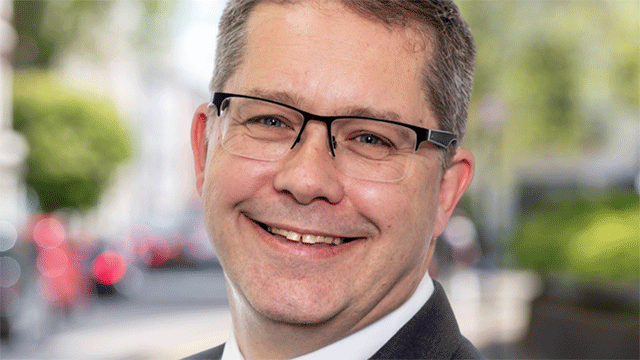Dutch-based Wereldhave is on the move. Nearly seven years after the departure of its globe-trotting boss, Willem van Dijk, it has become a major force in Britain through the £282m takeover of Peachey — and a growing presence in Spain, courtesy of acquisitions in Madrid and Barcelona.
To demonstrate their determination to get to grips with Peachey, Wereldhave chairman Onno Husken and director Gijs Verweij have earmarked £60m of Peachey’s property for eventual sale. Nearly £290m is for retention, while £70m is newly bought.
Pulling off the Peachey bid was quite an achievement for a company valued at some £600m on the Dutch stock market.
Wereldhave was formed in Rotterdam in 1930. From its roots as a local residential developer, it expanded across the Netherlands from 1960, becoming a leading property investor. Its original name Wereldhaven (or “World Port”) changed to Wereldhave (“World Property”) as its amibitions grew. By becoming a property investment company in 1972 it was able to avoid local corporation tax, though this move put legal limitations on its room for manoeuvre through trading property.
Wereldhave’s foreign adventures began in France in 1975, and it entered Belgium the next year. Conquests in Germany, Britain and the US followed within two years. The man behind them, Willem van Dijk, became well known to property men, brokers and journalists around the world as a deal-maker and gossip; his raw ambition made Wereldhave appear far more powerful than it really was.
Van Dijk bid for the troubled English Property Corporation in late 1978, making various rude comments about its investment policy. He claimed that one EPC site in Nice (sold to MAB of Holland in the midst of the bid battle) was “a car park in a river with a library on top to stop it floating away”. Husken, who was involved in the battle, points out that the eventual redevelopment of the site has not turned out to be successful.
After a counter-bid from the British insurance company Eagle Star, Canadian interests dominated the scene at EPC, with the Reichmann family’s Olympia & York briefly tussling with a branch of the Bronfman family for control of the company and its stake in the Trizec property concern of Canada. A chance encounter between the Canadians in a London hotel left Wereldhave out in the cold, as the Bronfmans gave way to a bid from the Reichmanns. Wereldhave did, however, eventually buy a couple of EPC properties in Brussels from O&Y.
In the UK, van Dijk had to make do with the takeover of a minor property company called Midhurst White from former fringe financier David Heimann. He also formed a development partnership with Cemp, one of the Bronfmans’ Canadian companies. MEPC could not believe its luck when Cemp came up with a generous offer for a project called Dorset House, which was facing a difficult letting market. The scheme ended up with a rent of £10 per sq ft instead of the projected £12.50; last year Wereldhave sold its half-stake in Dorset House to Cemp.
The Dorset affair did not help van Dijk’s reputation at Wereldhave. Nor did his decision to march the company into Dallas at the peak of the local boom. Vacancy rates in the Texas oil town are now 25%, and Wereldhave has sold most of its interests in the area.
As property booms in Europe turned into recessions, van Dijk and Wereldhave’s supervisory board agreed that he should leave.
Van Dijk departed in August 1982, and now runs private property concerns. People at Wereldhave remain grateful to him for taking them out of their backyard, but add that his ebullience was ill suited to the dull market of the early 1980s. Onno Husken ended up as chairman of Wereldhave; his ready smile belies his toughness.
In September 1982, an aggressive Dutch pension fund called PGGM tried to take advantage of a perceived management vacuum at Wereldhave by making a tentative takeover approach. After being rejected, it studied Wereldhave’s assets closely, and launched a hostile bid in July 1983, lifting its stake (plus shares pledged to it) to 40%.
In a determined attempt to fend off PGGM, Wereldhave used one of its byelaws to create new preference shares. This move left ultimate control of the company in the hands of an independent foundation sympathetic to management. Theoretically, PGGM could still get enough shares to persuade the foundation to change its mind. But the Dutch establishment rallied to Wereldhave’s defence, fearing that PGGM was getting too big for its boots. PGGM gave up the chase, and reduced its Wereldhave stake to a fifth. It is now a supportive shareholder.
After PGGM’s retreat in October 1983, Wereldhave lost no time in picking up an £8.5m portfolio of property in Brussels from Britain’s Rank Organisation. Rank regarded one of the properties, a shopping centre a few miles south of Brussels, as a problem, but Wereldhave had much better luck negotiating terms with local tenants.
From 1984, Wereldhave also spent some time rejigging its French interests. One joint-venture scheme near Paris did well out of a local boom, seeing an eventual rent roll of Fr30m in 1986, against an expected Fr18m in 1985. “When rents get moving, they move more quickly than you can ever imagine,” says Wereldhave’s Gijs Verweij. The company expanded in Germany, but encountered the competition which every outsider invariably faces from local funds and institutions.
A dreadful property market in Holland, and currency problems for Wereldhave’s American investments, help to explain why the company demonstrated little growth in the mid-1980s. In 1984 net assets per share were Fl157.2 and in 1987 they were Fl158.4.
The company also had the galling experience of seeing its Dutch rival, Rodamco, picking up Britain’s Haslemere Estates for a mere £245m in March 1986.
Wereldhave had found its initial forays into Britain quite discouraging. But it became convinced that low UK yields justified property purchases because of Britain’s unique 25-year lease system. The increasing stability of the British economy under Margaret Thatcher, and the withdrawal of some competition in the market from UK fund manager, helped to concentrate Onno Husken’s mind.
Husken was also aware that the tax treaty between Holland and Britain meant that he could compete with tax-efficient UK property companies and pension funds for the best deals. As a Dutch property investment company, Wereldhave pays no tax, provided it distributes enough income to its shareholders; the rules on the import and export of capital within the European Community meant that it could expect to avoid tax on a UK acquisition as well.
Wereldhave drew up a list of possible takeover targets, and in the wake of the stock market crash of October 1987, decided to pounce on the Peachey property group. It began buying shares in Peachey two months later.
John Brown joined the company in 1977, soon after the suicide of its highly controversial former boss, Sir Eric Miller, and worked to turn the company around. His assembly of Peachey’s interests in Carnaby Street proved a master stroke, and other acquisitions were sound.
But Peachey’s share register was wide open, and buying forays by Robert Holmes a Court and British Land in 1987 demonstrated the company’s potential vulnerability to a bid.
Peachey’s attack on industrial property company Estates Property Investment Co in early 1988 gave Wereldhave pause for thought. If Peachey had secured EPIC for the mooted £60m not only would it have became too big for Wereldhave to absorb, but it would have also acquired unwelcome industrial property. Wereldhave sold its share stake.
When Peachey effectively lost the battle for EPIC in a stand-off with Stephan Wingate, Wereldhave began buying shares in it again. By July 1988 it held nearly 5%. As it went over that level and towards 10% it called for talks with John Brown who tried to play for time.
Within days, Wereldhave became convinced that Brown would not agree a deal and launched a hostile £265m (612p a share) bid. Even though it was only marginally larger than Peachey, with a net worth of £327m, Wereldhave had good lines of bank finance. It also knew that under the Dutch system it would find it much easier to pull off a rights issue to raise additional cash than Peachey would ever suspect.
But Wereldhave was not interested in demonstrating the potential depth of its pockets to John Brown and a UK audience. The last thing it wanted was for Peachey to run off and find a white knight. So, throughout the bid battle, as Peachey revalued its properties to a possible 676p a share. Wereldhave kept a low profile. “We were well advised by our valuers, Hillier Parker,” says Husken. “Our calculations on the worth of the portfolios weren’t much different to Peachey’s.”
When no white knight appeared, Wereldhave’s advisers, Cazenove, said that it would probably get control by offering (50p and raiding the market for stock. So it proved, and John Brown was out of a job.
Husken was extremely glad to get control of Peachey without a prolonged fight which might have undermined the morale of Peachey’s staff: “We had our own experience with that procedure with PGGM,” he says. “The last thing we wanted to upset was Peachey’s management because they were among the assets we wanted to acquire.”
In the wake of the takeover, Wereldhave made its rights issue — at a premium to book asset — to friendly investors; Aubrey Adams and much of Peachey’s team were happy to stay with the company. Wereldhave has gone through the portfolio, and decided that roughly £60m of it should be sold. An Allsop’s auction of some 18 little Peachey properties at the beginning of the year proved successful. Peachey has bought £13m property in Redhill, and paid £29m for Kodak House in Kingsway, WC2. Wereldhave has also exercised a Peachey option to buy £30m of EPIC’s property from Stephan Wingate.
It looks unlikely that Wereldhave will be carrying out many UK developments in the near future, though it is finishing off a few Peachey schemes, including a 39,000-sq ft office scheme in Eastcheap, EC3. At Carnaby Street, Wereldhave is working to improve the tenant mix. However, Verweij says he does not want to lose its traditional character: “We’ve just had a fashion show there,” he says. “In the 1990s, we want good shops, plus restaurants and pubs to give people more chance to relax.”
Verweij is delighted with his acquisition: “We’re amazed how well it has all gone,” he says.
Chairman Onno Husken does concede that, in Peachey, Wereldhave has bought itself a currency problem. In short, tax factors and the high cost of borrowing in the UK have convinced Wereldhave that it should finance its acquisitions through Dutch borrowings. Such a currency mismatch is not ideal, and volatility in the foreign exchange markets has dissuaded Wereldhave from carrying out a potentially expensive hedging operation. Right now, Wereldhave is only 20% hedged against the pound, and hoping for the best.
UK apart, Wereldhave is expanding on the eastern seaboard of the United States. It has also recently gone into Spain, purchasing a development site in Barcelona and an office block in Madrid. “There’s great potential in Spain,” says Verweij. “But the property market is unsophisticated, and a great deal of horse dealing goes on.
“At our Madrid property, the vendor, a bank, first wanted to vacate two floors, then decided it wanted to occupy them again two days before the completion of negotiations. It insisted on remeasuring the floors, when we’d only just agreed on how big they were.”
Verweij thinks that doing a deal with a private individual in Spain would be even harder.
“There’s just not enough information on the local market.” he says. “We only know that lettings are being carried out at 4,100 pesetas per m2 because we ourselves have done a letting.”
Verweij has a high regard for British standards of expertise in the agency world, and is glad to see a number of our top agents now opening in Madrid. He has no intention of tangling with even more esoteric markets like Portugal or Italy for the time being.
In its own backyard, Wereldhave has been rather stung by recent stagnation in the Dutch property market: “You guys should really remember that property doesn’t always go up,” says Wereldhave’s Dutch property manager, Nico Veldhuis. Rents for Amsterdam offices have barely moved since 1981 because of oversupply, though there are now flickers of life in south Amsterdam. Veldhuis reckons that 60% to 70% of his tenants renew at the end of every five- or 10-year lease period, and believes that Wereldhave’s habit of managing its own buildings contributes to this success rate.
To attract tenants to the refurbished former Esso headquarters in The Hague, Veldhuis has actually reduced its size to 9,500 m2 to incorporate more of the building’s original features. “We’ve reduced the space by 10%,” he says. “But our prospective rent has gone up from Fl240 to Fl340 per m2, and we have 80 instead of 18 parking spaces.”
Wereldhave has sizeable schemes on the stocks in The Hague and around Amsterdam. It has also belatedly attempted to build a Dutch shop portfolio with the purchase of a centre in Arnhem. But it is not Wereldhave’s nature to rush into things, particularly while prospects for Dutch property are mixed.
Working on an exchange rate of Fl3.6 to the pound, Wereldhave’s net asset base rose to Fl1.65bn (£457m) in the year to December 1988, taking account of the Peachey acquisition and the resultant rights issue. That works out at Fl170 (£47.22) a share, against Fl158.4 in 1987, with Wereldhave’s shares now standing at Fl205 (£56.94).
Total investments were Fl2.9bn (£805m); Wereldhave’s gearing is roughly 100% of shareholders’ funds after the Peachey transaction and pre-tax profits were Fl81.1 (£22.5m).
Britain now accounts for 45% of Wereldhave’s assets, but Verweij thinks that in due course he might slim that total to 30%, as a result of acquisitions elsewhere. The Netherlands holdings make up 22% of assets, having plunged dramatically from 70% in 1978. The USA stands in at 11% and France at 10%. Belgium represents 7%, West Germany 4% and Spain 1%.
Wereldhave likes to point out that we should not try to judge its slow progress through the mid-1980s by British standards. The UK property market has been booming, while others parts of the world have not. It is also fair to add that an investor who put money into Wereldhave shares in 1970 would currently see them up 11-fold.
Husken says he is now aware of the need to publicise Wereldhave’s potential across Europe, particularly in London. He is keen to get back the British investment following which Wereldhave used to have until PGGM hoovered the London market for stock.
A UK share placing looks a possibility in the future.










